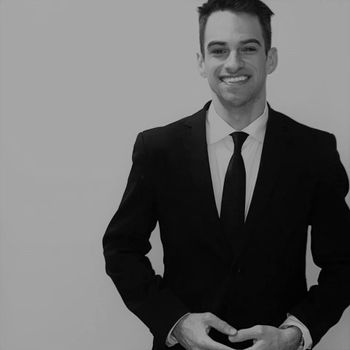Princeton president says 'false ideas' are 'inconsistent' with university's values...then spreads false idea about Trump
Princeton University President Christopher Eisgruber said in his defense of free speech that "false ideas" are "inconsistent" with the university's values.
The Ivy League administrator then took former President Donald Trump's words out of context, leading readers to believe the Republican defended the white nationalists who stormed the streets of Charlottesville in 2017.
In his annual State of the University letter, Princeton University President Christopher Eisgruber doubled down on his prior defense of free speech, saying that “false ideas” are “inconsistent” with the university’s values.
He then claimed that former President Donald Trump said something he never said.
After detailing challenges wrought by COVID-19 and political turmoil, Eisgruber turned to the topic of free speech. He explained to students that free expression is crucial for dispelling bad ideas and advancing the search for truth.
“I am a passionate defender of free speech,” he wrote. “Vigorous argument is essential to truth-seeking and scholarship. On college campuses in particular, we should meet falsehoods and offensive arguments with better speech, not with censorship, suppression, or punishment.”
[RELATED: Biden taps Princeton prof for science team. She has an idea on how gov’t can use DNA.]
“Free speech and truth-seeking require not only the absence of formal restraint or disruption, but also a willingness to learn from those with whom we disagree,” he continued. “We impoverish our discourse and ourselves if we are quick to ostracize speakers who say things that offend us.”
However, Eisgruber clarified that Princeton’s core value is not “free speech,” but “truth-seeking.” He condemned “reckless expression of offensive or false ideas” as “utterly inconsistent with scholarly ideals.” Citing what he sees as one example of this, Eisgruber cited Trump’s remarks following the Charlottesville protest in 2017.
”One of the lowest points of Donald Trump’s presidency, for example, was his disgraceful statement that there were ‘very fine people on both sides’ when white nationalists and Nazis marched on the University of Virginia’s campus,” Princeton’s president said.
Despite what Eisgruber and the mainstream media would have you believe, however, Trump never actually said during that 2017 speech that there were “very good people” among the neo-nazis and white nationalists who marched in Charlottesville.
Referring to what happened in Charlottesville as a “horrible day,” Trump said, “many of those people were there to protest the taking down of the statue of Robert E. Lee...they were there to protest the taking down the statue of Robert E. Lee.”
”And you had some very bad people in that group,” Trump continued. “But you also had people who were very fine people, on both sides. You had people in that group who were there to protest the taking down of, to them, a very important statue and the renaming of a park from Robert E. Lee to another name.”
Trump continued on to say, “But you had people, and I’m not talking about the neo-nazis and the white nationalists because they should be condemned totally. But you had many people in that group other than neo-nazis and white nationalists and the press has treated them absolutely unfairly.”
One Princeton undergraduate — who spoke on the condition of anonymity out of fear of backlash — told Campus Reform that Eisgruber could be more consistent in his support of free expression.
“He says that Princeton must uphold free speech, and he is right,” remarked the student. “But his actions reflect otherwise: his team warned a conservative professor for sharing his views and he canceled important, albeit imperfect, figures in our school’s history. I wish President Eisgruber’s actions would meet the standard of his words. I grant that he has a hard job, but I would appreciate it if he didn’t back down in the face of every firestorm.”
Eisgruber has been the subject of ire at Princeton for his support of free speech. In November, the editorial board of the Daily Princetonian — Princeton University’s student newspaper — condemned Eisgruber’s defense of free expression.
[RELATED: Princeton student newspaper urges university to fight ‘racist speech’]
“At a virtual town hall last month, President Christopher Eisgruber ‘83 stood by the University’s hardline free-speech policy, which came under fire this summer, after his administration declined to respond to instances of racist speech, citing free speech protections,” wrote the editorial board. “If the events of this summer made clear that Princeton has failed in its efforts to combat racism and prejudice on campus, Eisgruber’s remarks only underscored this reality.”
The students also asked administrators to consider “racist speech” as “harassment,” which would leave perpetrators open to sanctions under the university’s disciplinary policy.
Campus Reform reached out to Princeton University for comment; this article will be updated accordingly.
Follow the author of this article on Twitter: @BenZeisloft


